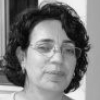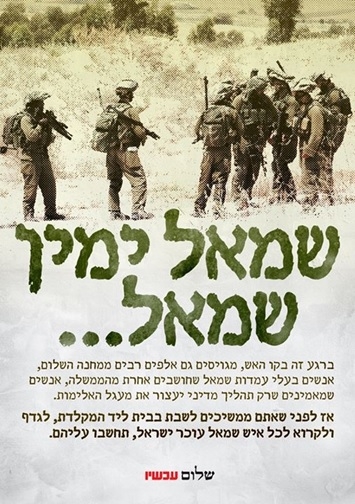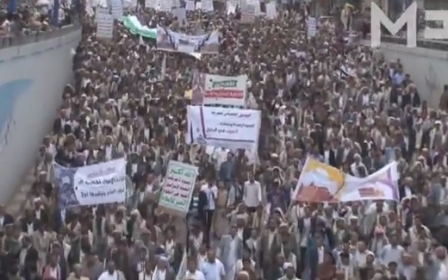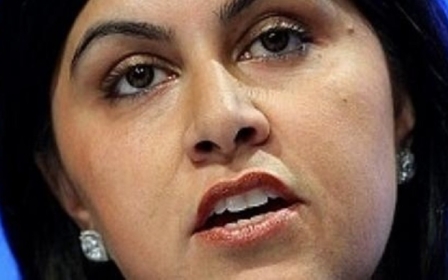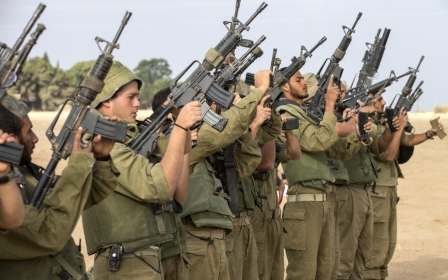A nation’s collective myopia
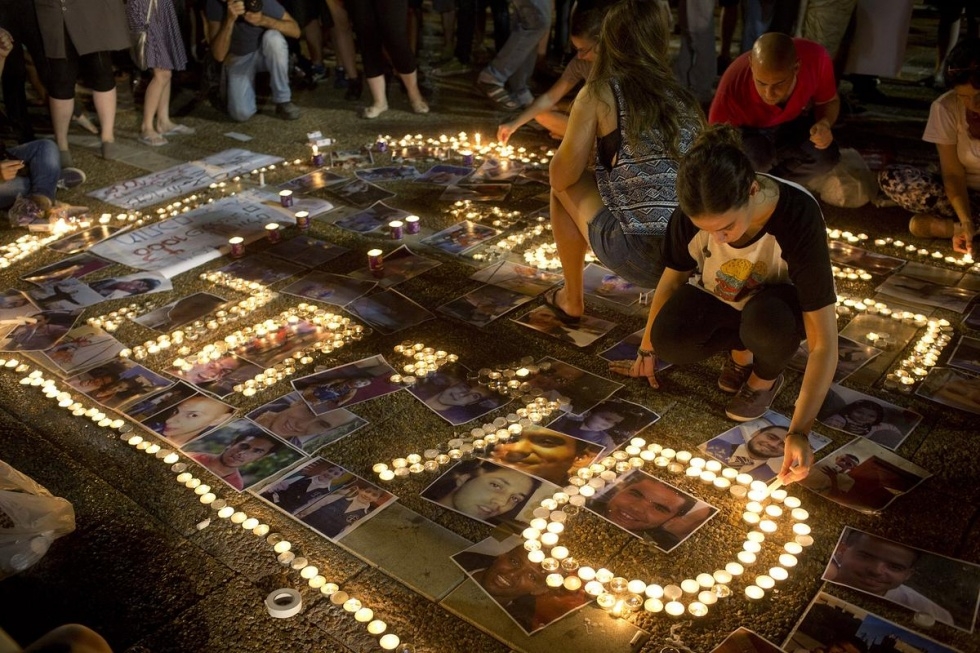
“How the cisterns have dried,
The market-place is empty,
And no one frequents the Temple Mount,
In the Old City.”
(From Jerusalem of Gold by Naomi Shemer)
These lyrics form part of a popular song that described the occupation of Jerusalem in the war of 1967. My generation of Israelis grew up with the idea that “the market-place is empty”, which to us meant that we conquered a city that was waiting for our salvation. We did not ask what happened to the Palestinians. Few of us truly ask what happens to the Palestinians. I am trying to understand the cultural mechanisms that allow our society to know and not know at the same time. We see what is happening to the people in Gaza but most of the time we make little connection between that and the actions of ordinary Israelis.
A nationalist mainstream media
Much is being written in Israel about the role of media in constructing the mindset of Israeli-Jews. The majority of this community does not consume international news outlets because of habit, language restrictions and mistrust towards anything foreign.
Like any mainstream media during wartime, the Israeli media is nationalist, it supports the government, and it is self-centered and self-righteous. During the war there are no voices of opposition. For example, one major Hebrew news outlet came up with a slogan: “First of all we are Israeli” (ie they are loyal to their national identity before being journalists). Free speech is limited mostly by self-censorship. Self-censorship is very hard to identify because it reflects the public discourse. It tells us what we want to hear.
I had hoped that social media would fill in the blind spots, as it provides access to so much more information, but it too is limited because each one of us has his or her “friends” - most of them people who think like we do - through which we channel certain information. Information that is circulated by “the enemy” is categorised as false, edited and manipulative.
The way in which we consume media can help us to understand how it is possible that so few Israeli Jews are seeing the massacre in Gaza. However, the media is only a part of the story. On Saturday evening I went to a graduation event celebrating the end of a year-long volunteer program of a Jewish leftwing Zionist youth movement. These are young people who will soon enlist in the army. The young people were torn between celebrating their year-long work with children and youth, and dealing with “the situation” as this war on Gaza is called. One of the sentences heard from the stage stayed with me:
“The situation is painful and complex. While we are here, our soldiers are endangering their lives to protect us. And at home there is a growing atmosphere of hate (towards Arab citizens and towards Jews who oppose the war). There is racism and violence that threatens the foundations of our democracy.”
The “complex situation” left the Palestinians out of the equation. It portrayed the soldiers as disconnected and not at all responsible for any killings.
The next morning I listened to Israeli radio. I noticed how sterile the broadcast was. Generals and politicians are interviewed, as are women and men who are living under constant missile attack in the south of Israel. We also hear journalists who bring the Palestinians’ perspective via the Arab media channels. However there are almost no voices of Israeli opposition and of Palestinians is general.
That morning, on the 20th day of the attack on Gaza, Israeli radio interviewed Israeli journalists who were allowed, for the first time, to enter with the army into Gaza. Until that morning the news did not include first-hand reports by “our journalists”. Carmela Menashe, a well-known army correspondent, was in Dir al-Balah (a refugee camp in Gaza which was badly hit by Israel) and this is what she told the listeners:
“I saw tunnels. I saw shafts. I saw houses which are completely destroyed. I saw emptiness. There is no population in the village, in the neighbourhood. Everything there is destroyed, shelled - a result of the air force’s bombing. And the IDF forces are sitting in the shade under fig trees and grapevines with fear… No not fear… alertness. Aware of the danger of being shot by snipers. Fear that terrorists are still under the area, in the tunnels. A 10-minute drive from the border there’s a house. A girl's doll lies on the floor of one of the bedrooms. Next to the doll there is a deep shaft - a tunnel that was dug in order to reach and kill a child across the border, in a kibbutz. And the destruction in Gaza is horrible. Everything is shelled, no sidewalks, no roads, no one can return to such a place. And on the other hand there are tunnels that need to be bombed.”
Other correspondents who were with her in Gaza did not meet Palestinians. They met soldiers and “naturally” they identified with them. They reported on the “job” that these soldiers have done looking for tunnels. They conveyed the risk that the soldiers were in. These journalists did not mention at the end of their coverage that they were embedded (guests of the army) and that they did not meet Palestinians because the Palestinians were all displaced. All of them helped make the dissociation between what they saw and who is responsible for what they saw - as if the soldiers had a job to do and the destruction and emptiness were happening on a parallel universe.
Deep dissociation
This was very similar to what I heard from the young people on stage the night before. It all reflects the Israeli-Jewish mindset. Horrible things happen, but we are not the ones making them happen. The soldiers are sons, brothers and husbands. Sons, brothers and husbands are good people. Therefore the destruction and death becomes something that happened, as if by itself, by force major, or sometimes by the Palestinians themselves (Netanyahu repeats the idea that the Palestinian civilians are dying because of the Hamas).
The Peace movement Peace Now best expressed this with the following ad:
(Translation) Left, Right, Left…
At this moment on the front line, thousands of the recruits are from the peace camp. These are people with left-wing positions who think differently from the government. These are people who believe that only a political process will stop the cycle of violence. So before you continue to sit at home by your keyboard and curse them and call every left-wing person a traitor, think of them.”
Demonstrators from the peace camp are attacked by the rightwing and accused of being traitors. It has become hard and frightening to express any opposition. With this ad Peace Now is trying to legitimise the public debate. But in doing so they expose this deep dissociation I mentioned.
In Israel, the percentage of enlisted soldiers in relation to its citizens is the third highest in the world (after North Korea and Eritrea). Israel recruited 86,000 reservists in addition to the regular forces. That means that 86,000 civilians stopped what they were doing and in a few hours entered the battlefield. If we include their supportive families, we see that the circle of support is very broad (polls show that 87 percent of Jewish citizens support the war). The level of obedience and the sense of collectiveness are extremely high. The media alone does not account for this. In many ways it is a reflection of a cultural phenomenon. The only way that this culture of violence can continue is if people believe that they are doing good. No one wants to live with someone who took part in war crimes. We persuade ourselves that we are living with heroes who went to war only to defend us.
The problem today is that we still see the empty market-place. We see the pictures and we get the information about the people in Gaza, and all of that information is processed in a way that prepares the ground for the next war.
- Michal Zak is a political educator, expert in Jewish-Palestinian dialogue and a resident of the Palestinian –Jewish community of Wahat al Salam-Neve Shalom, in Israel.
The views expressed in this article belong to the author and do not necessarily reflect the editorial policy of Middle East Eye.
Photo credit: Israelis look on as the security forces patrol the area after a Palestinian excavator driver attacked an Israeli bus in Jerusalem on August 4, 2014 (AA)
New MEE newsletter: Jerusalem Dispatch
Sign up to get the latest insights and analysis on Israel-Palestine, alongside Turkey Unpacked and other MEE newsletters
Middle East Eye delivers independent and unrivalled coverage and analysis of the Middle East, North Africa and beyond. To learn more about republishing this content and the associated fees, please fill out this form. More about MEE can be found here.


